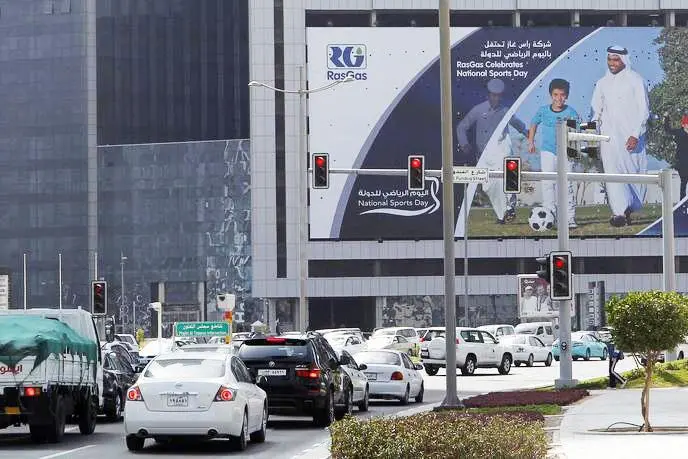PHOTO
By Sanaullah Ataullah
A report released by the Qatar Mobility Innovations Center (QMIC) yesterday shows a significant rise in the economic cost due to traffic congestions in the country, reaching up to QR6.6bn last year, from QR6bn estimated in 2015.
The study, however, indicated an improvement in the situation during the second half of last year, as a result of completion of several road projects being carried by the Public Works Authority (Ashghal).
Brigadier Mohammed Saad Al Kharji, Director of the Traffic Department (General Directorate of Traffic), who was present during the presentation of the independent study, said that the traffic scenario depicted in the report was “temporary” and a clear picture would emerge only when all the road projects are completed, hopefully in three years.
The annual Qatar Traffic Report also showed that the average time a commuter wasted on the roads due to traffic congestion rose to 109 hours in 2016 from 102 hours in 2015.
The economic cost (lost productivity) of congestion in 2016 is estimated to be between QR5.6bn and QR6.6bn compared to about QR5.2-6bn in 2015). This translates to a loss of about 0.9-1.0% of the GDP in 2016, said Dr Adnan Abu-Dayya, Executive Director and CEO of QMIC at the launch event yesterday at Hilton Hotel, while releasing the report.
“The study is shocking for sure but I believe the real figures will come when all roads are opened, railway projects commenced and public transport expanded. Many roads will be opened starting from this year," Brig Al Kharji told reporters on the sidelines of the event.
“It is an exceptional condition and temporary. The real picture will come after three years when most roads will be open for traffic and then the scene will be changed completely,” he added.
He said traffic jams are an international phenomena and even some advanced countries are suffering from this problem despite that they have a complete infrastructure.
“We have to be patient for the time being. I used to give an example to explain this situation. For example someone is sick and the doctor told him that he needs surgery and it will take a month for recovery. The patient will undergo the operation and wait for recovery,” said Al Kharji.
The study was done by analyzing more than 1.4 billion data records collected by the Masarak advanced traveler info system across the major road segments in Qatar.
During the period of study, the most congested segments in afternoon peak were from environment roundabout to Duhail intersection at Al Kharji street, Television roundabout on Ahmed bin Ali Street, from Al Saad intersection to Olympic roundabout on Jawaan street, Al Waab intersection on Bustan street and from Lejibailiat intersection to television roundabout on Al Jamaa street.
Other key findings revealed in the 2016 QTR include: Although the overall congestion for 2016 is slightly worse than 2015, congestion levels in the 2nd half of 2016 are better than those of 2015.
This indicates that road projects completed by Ashghal in the middle of 2016 started to have a positive impact on traffic flow.
We expect traffic behavior to keep improving or stay flat on a year-year basis as more road projects are completed.
October 2016 was the most congested month in the year with a travel time index of 1.75 throughout the day.
The highest congestion period is the morning peak (around 7 am) where the average congestion index is 36%.
In the morning peak hours of work days, Sundays had the highest travel time index of 2.14 and Thursdays had the lowest travel time index of 1.97
“QMIC has developed and deployed the only advanced traveler info system in Qatar with a comprehensive state of the art data collection network combined with necessary intelligence and user applications,” said Abu-Dayya.
The event was attended by Brigadier Mohamed Abdullah Al Maliki, Sec Gen of National Traffic Safety Committee, and Ibrahim Abbas, Ministry of Municipality and Urban Planning, Dr. Adnan Abu Dayya, Executive Director and CEO of QMIC, Abdulla Zaid Al Talib, Chairman of QMIC.
In order to gauge traffic conditions for year 2016 in a scientific, methodical and accurate way, the QTR used the concept of Masarak Congestion Index (indicates average reduction in speed due to congestion) and the Travel Time Index (indicates the increase in travel time due to congestion) to assess the level of road congestion.
QTR has been considered as a traffic index (and a score card) for Qatar over a period of two years so far. QMIC is the first independent innovations center in the region with a focus on developing and deploying smart mobility systems and services.
© The Peninsula 2017





















